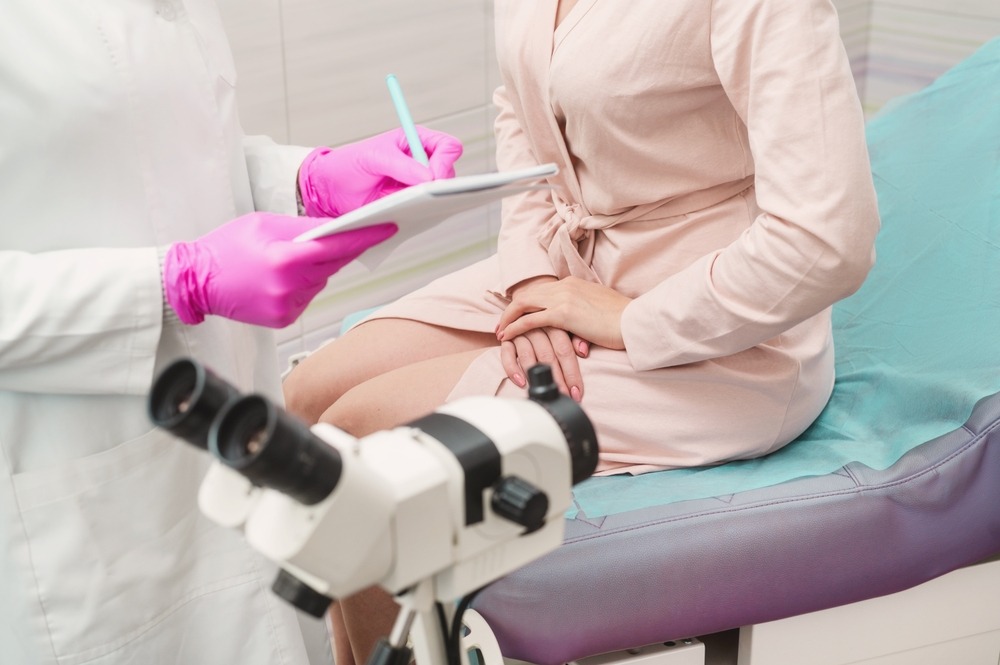
Visiting a gynecologist is a necessary part of healthcare, but for many, it can be an anxious experience. Whether it’s your first time or a routine visit, there are steps you can take to ease anxiety and ensure a smooth experience. Here are 10 essential things to avoid before your next gynecologist appointment to help you feel more comfortable and ensure that your visit goes as efficiently as possible.
1. Avoid Urinating Just Before Your Appointment
It might be tempting to go to the bathroom right before your gynecologist appointment, but it’s important not to empty your bladder completely. Many gynecological exams, such as testing for s3xually transmitted infections (STIs) or urinary tract infections (UTIs), require a urine sample. If you’ve just emptied your bladder, it could be difficult to provide the necessary sample. Please consider drinking extra water before your appointment to make sure you’re able to provide a sample when needed.

2. Reconsider Pelvic Grooming
While it’s understandable to want to be well-groomed for your gynecologist appointment, it’s best to avoid aggressive grooming before the visit. Shaving, waxing, or other forms of grooming can cause irritation, small cuts, or nicks that could cause discomfort during your exam. Your gynecologist doesn’t mind whether you’re groomed or not, so it’s best to leave things natural. This approach will contribute to a more comfortable and beneficial examination.

3. Avoid Scheduling an Appointment During Your Period
Unless you’re visiting your gynecologist for specific concerns related to your menstrual cycle, it’s best to avoid scheduling your appointment during your period. Menstrual bleeding can interfere with certain tests, such as Pap smears, and can also cause discomfort or sensitivity in your reproductive organs. Additionally, you won’t be able to wear tampons or menstrual cups during the examination, which could make the experience more awkward and uncomfortable.

4. Write Down Your Medical History
Being prepared with your medical history is crucial to getting the best care. Before your appointment, take some time to write down any relevant medical conditions, surgeries, or previous gynecological issues. Having this information ready will help your gynecologist make an accurate assessment of your health and ensure that all aspects of your medical history are considered during the examination.

5. Write Down Your Questions
It’s natural to have questions about your health, and a visit to the gynecologist is the perfect time to ask them. Write down any concerns or questions you have so that you don’t forget them during your appointment. Whether it’s about birth control options, symptoms you’re experiencing, or preventative health measures, no question is too small. Don’t hesitate to ask, as your gynecologist is there to help and provide answers.

6. Don’t Over-Google
While it’s common to seek information online, avoid excessive research before your gynecological appointment. While some general knowledge is useful, over-researching can lead to unnecessary stress and confusion. Not everything you read online may be accurate or applicable to your situation. Trust your gynecologist’s expertise—if you still have concerns after your appointment, consider seeking a second opinion, but don’t let online sources create unnecessary anxiety.

7. Don’t Panic
It’s normal to feel anxious before a medical exam, especially a gynecological appointment. However, panic can increase discomfort and anxiety during the exam. One of the best ways to improve your experience is by practicing relaxation techniques, such as deep breathing or meditation, before your visit. Staying calm can help reduce physical tension and ensure that the examination proceeds smoothly. Remember, your gynecologist is a professional who is there to help, not to judge.

8. Don’t Go Alone
If you’re feeling nervous about your appointment, consider bringing someone with you for support. A trusted friend, partner, or family member can provide emotional comfort and reassurance. While they may not be able to accompany you into the exam room, they can wait with you beforehand and provide support afterwards. Having someone to debrief with can also help reduce anxiety and ensure you feel heard and understood throughout the process.

9. Don’t Hide Symptoms
It’s important to be honest and transparent with your gynecologist, even if you feel embarrassed about certain symptoms. Whether it’s unusual pain, fatigue, changes in menstrual cycle, or other health concerns, concealing symptoms can delay diagnosis and treatment. Your gynecologist is a medical professional and is there to help, not to judge. Full disclosure ensures that you receive the most accurate diagnosis and the best care for your health.

Conclusion
While visiting the gynecologist may not be the most comfortable experience, proper preparation can help ease anxiety and ensure that the visit goes smoothly. By avoiding these common mistakes, you can ensure that you receive the best possible care. Remember, your gynecologist is there to support your health and well-being, and being prepared helps make the experience easier and more effective for both you and your doctor.
For more information on how to prepare for a gynecologist appointment, visit reputable healthcare sources or consult directly with your doctor. Regular check-ups and open communication are essential to maintaining reproductive health and overall well-being.
Sources:
- American College of Obstetricians and Gynecologists (ACOG)
- Mayo Clinic
- National Health Service (NHS)


